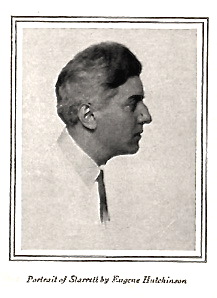Penny Poems
Two previously unpublished verses and talk of Christopher Morley
More than 60 years ago, a young English instructor at Amarillo College in Texas came up with a playful idea: He would publish new or recently discovered poetry in a single broadside sheet and charge one penny for them. Penny Poems from Amarillo College was the brainchild of Jon Bracker, and two of Vincent Starrett’s previously unpublished poems made it into this little series.
Bracker treated each sheet like it was a full magazine, starting with Volume 1, Number 1. Each broadside sheet was large: 14 inches high by 8.5 inches wide. Since there were ten in each volume, the subscription price was ten cents, which was to be paid in postage stamps. There were also broadside booklets that collected all of the volume’s work together, although I have not been able to find a copy for sale.
Yet.
Bracker managed to find unpublished poems from quite a few writers for his first volume: Christopher Morley (more on him in a minute), Blythe Morley Brennon, Christine Woyke, Tom Bojeski, Neil B. Houston, Norton H. Moses, Watson Lawrence Szychulski, Michael Ingham, and Frederick Eckman all had contributions.
And, as I said, he also published two poems by Vincent Starrett:
“Vignette Domestique” was Number 3 of the first volume, published on May 5, 1963; “Elephants in Aspic” was Number 5 of the second volume, published on Jun 20, 1963.
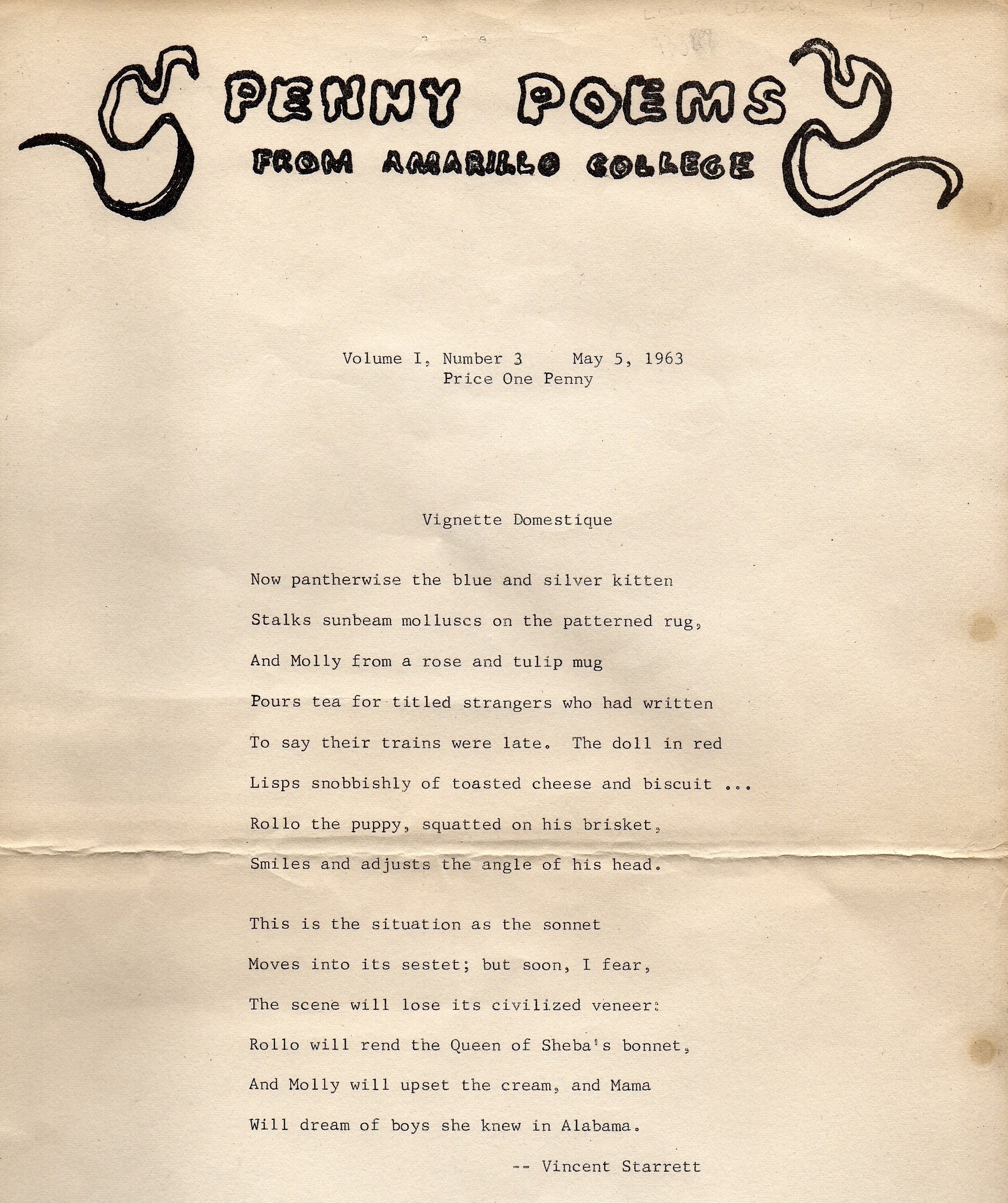
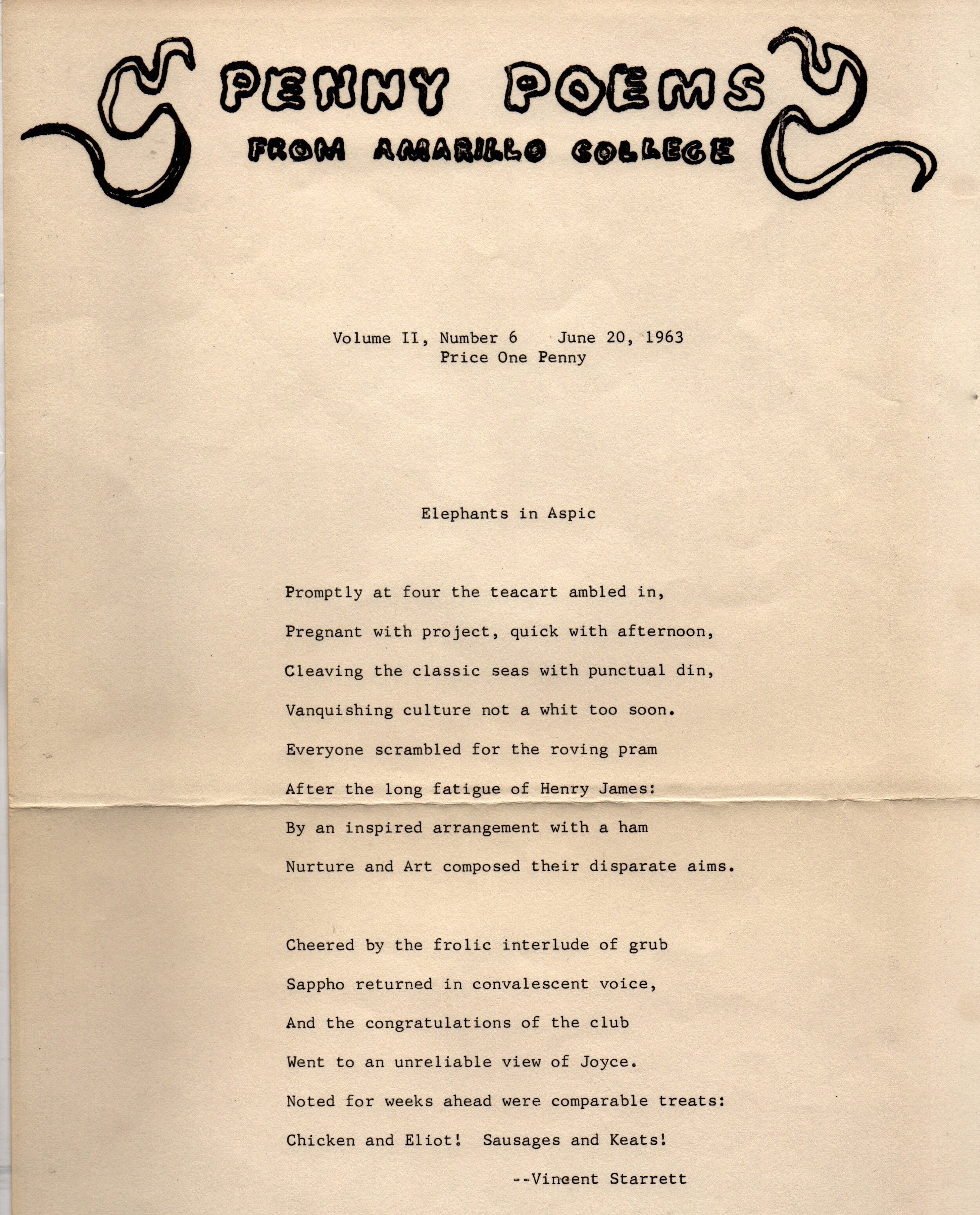
Here are the two poems. My home scanner can’t handle the broadside size, so I’ve had to cut the pages in two, with the poems first, then the brief bios and other information posted here separately.
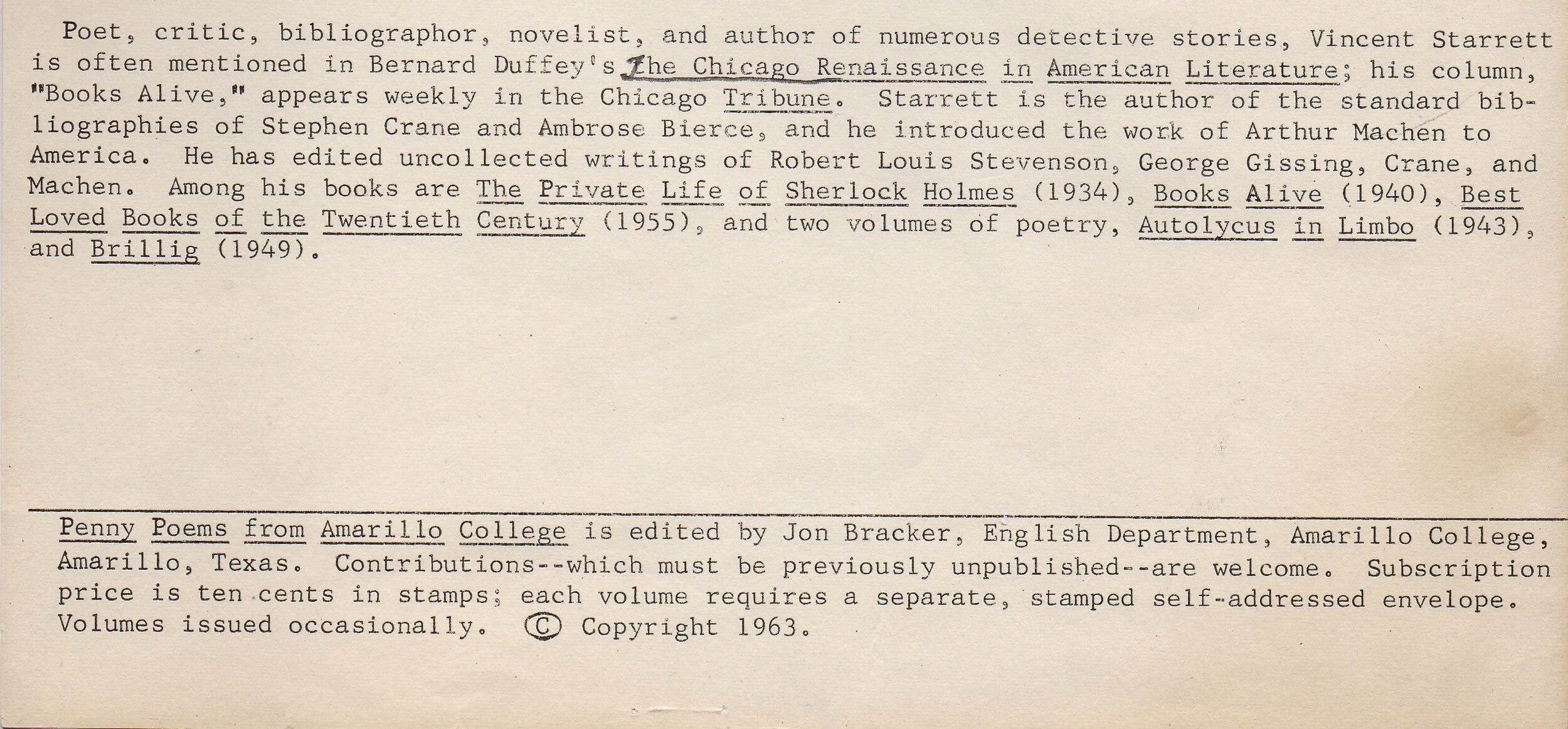
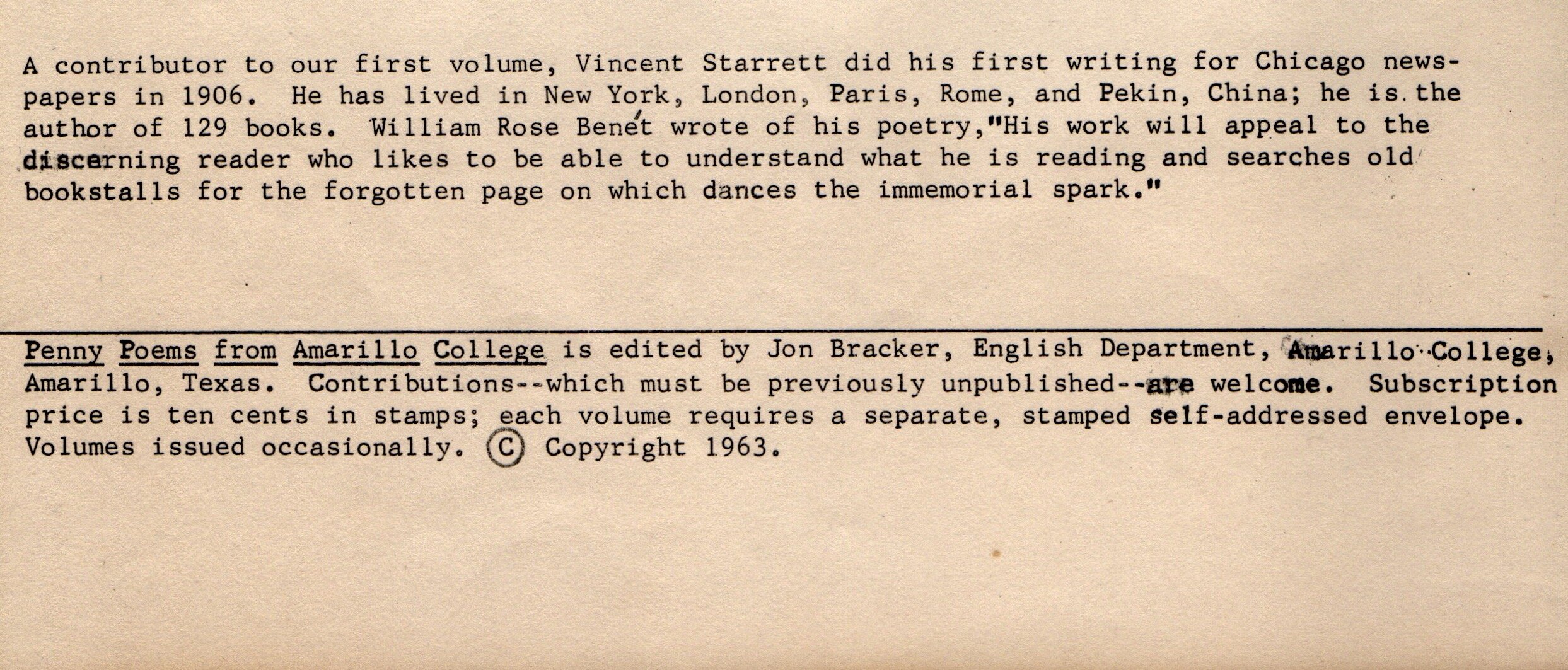
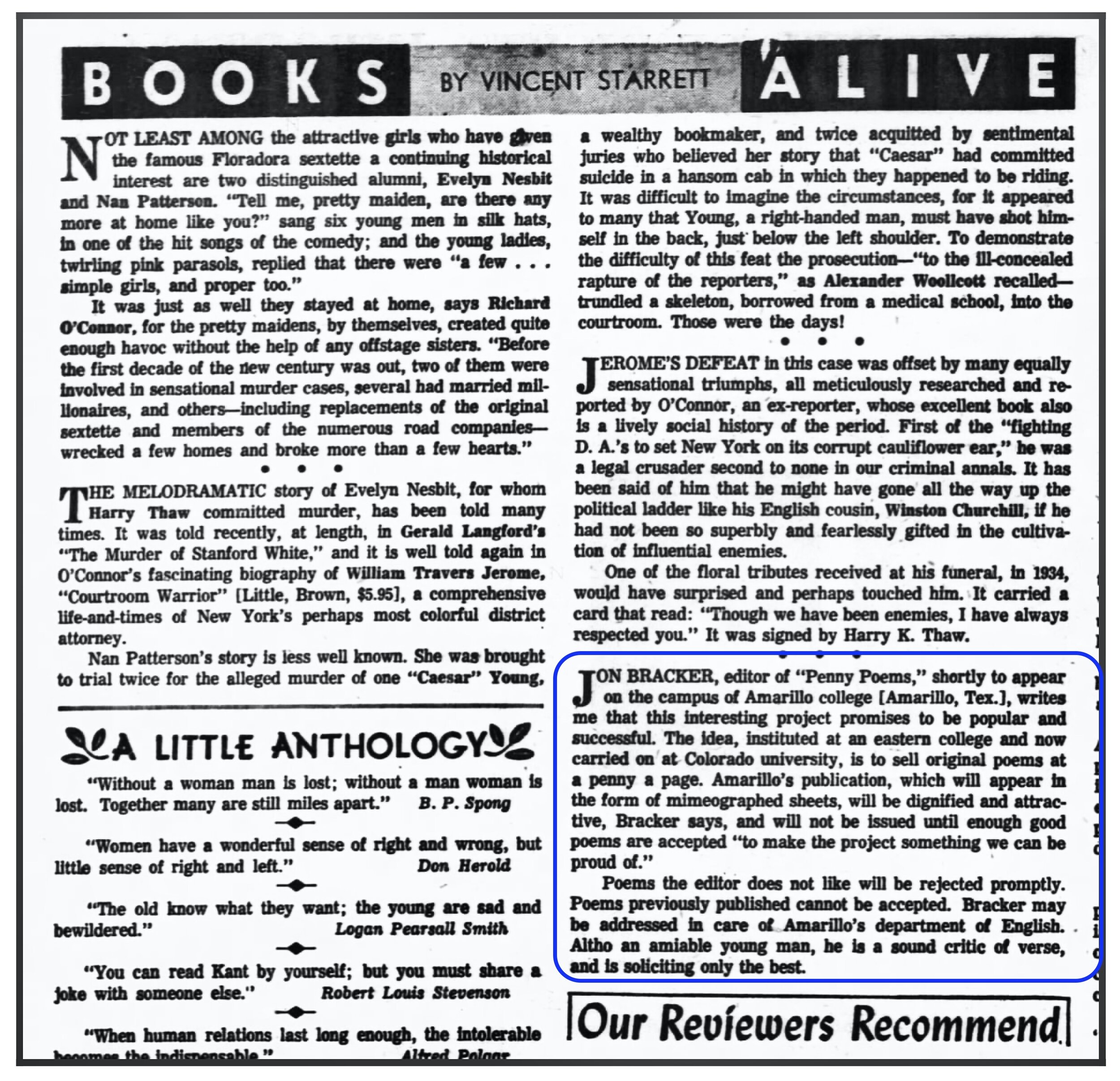
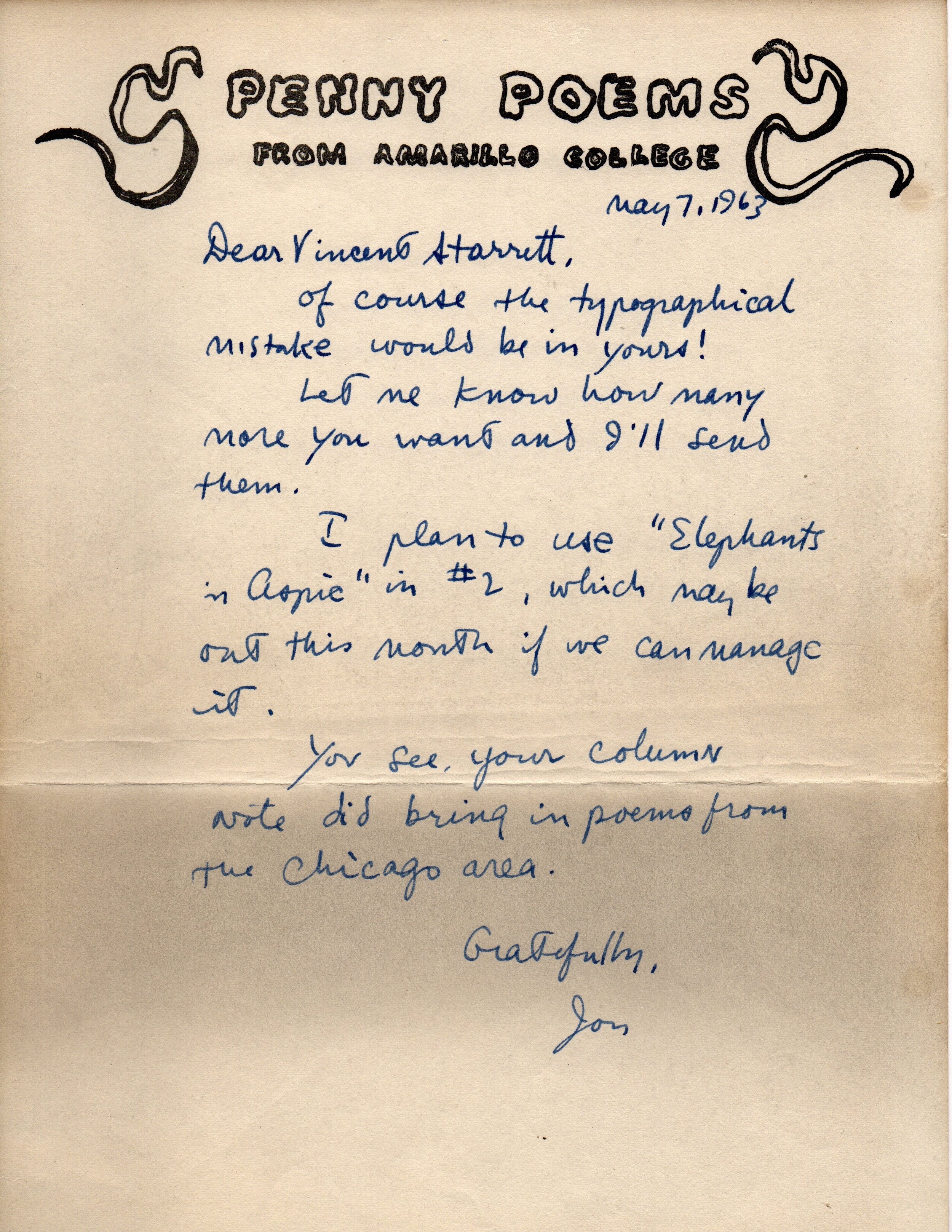
Also here is a copy of “Books Alive,” which Starrett wrote in April of 1963 for the Chicago Tribune. At the tail end you’ll see Starrett promotes the Penny Poem plan and helps Bracker solicit contributions from the Chicago area.
There is also this follow-up note from Bracker, who laments a typo in the first poem.
Bracker and Christopher Morley
A New York City native who grew up in Shreveport, Louisiana, Bracker earned both his undergraduate and graduate degrees from the University of Texas, which held (and still holds) a tremendous amount of material by and about Morley, the BSI’s founder. In the early 1960s, Bracker curated an exhibition of Morley’s works and laid plans to write his biography. While pursuing information about Morley, Bracker contacted Starrett and the two corresponded a bit before Bracker was able to visit Starrett and his wife, Ray, in 1960.
By way of the very generous Morley collector and Baker Street Journal Editor Emeritus Steve Rothman, I can share some of the correspondence. Many thanks to Steve.
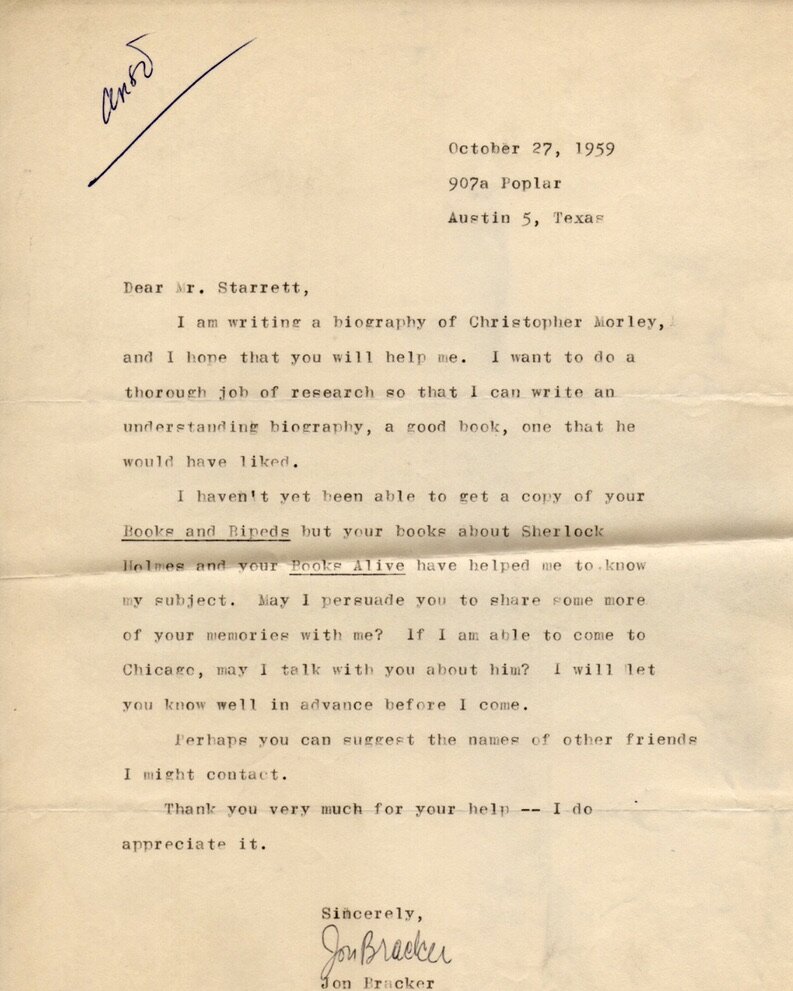
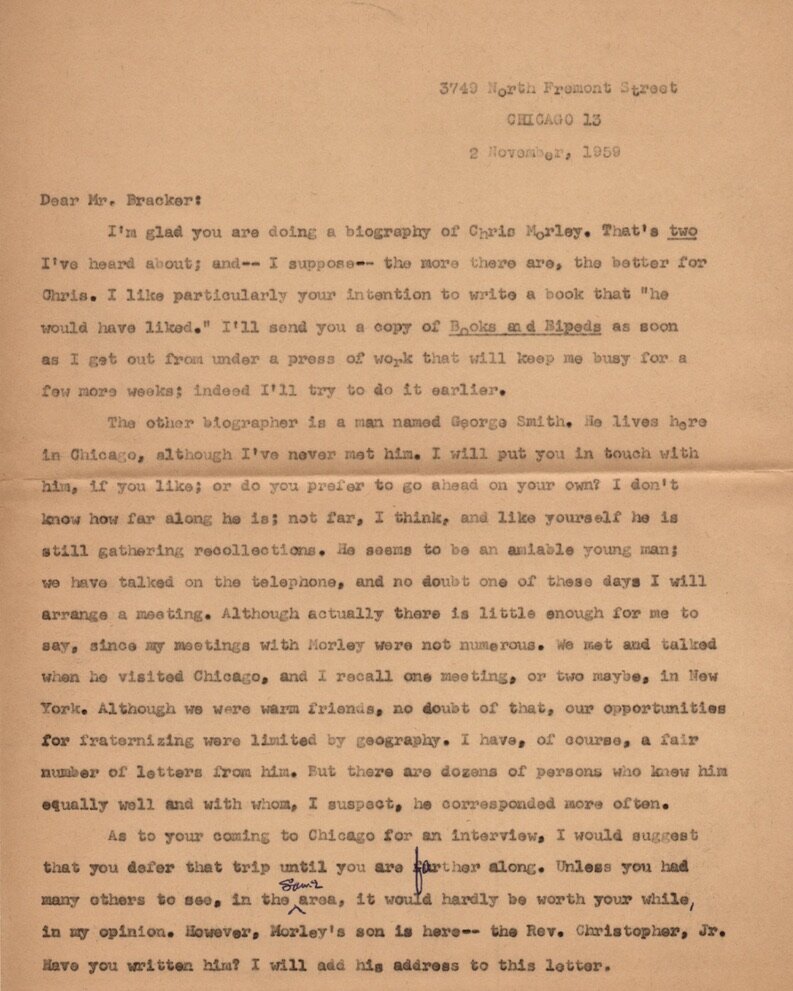
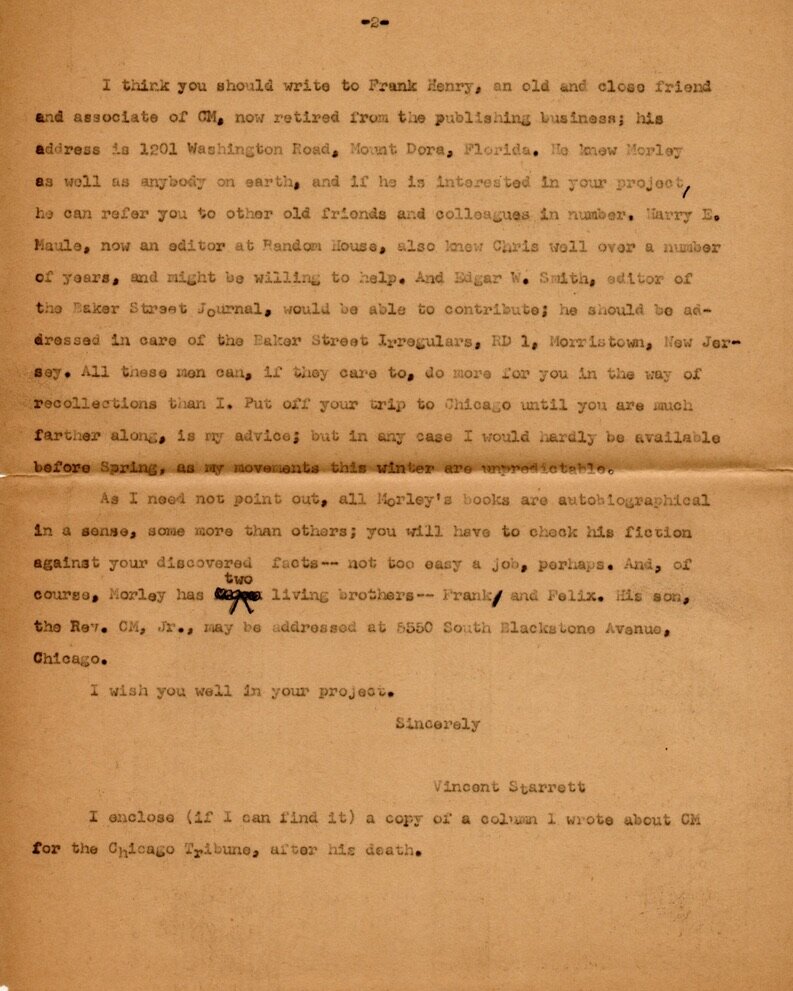
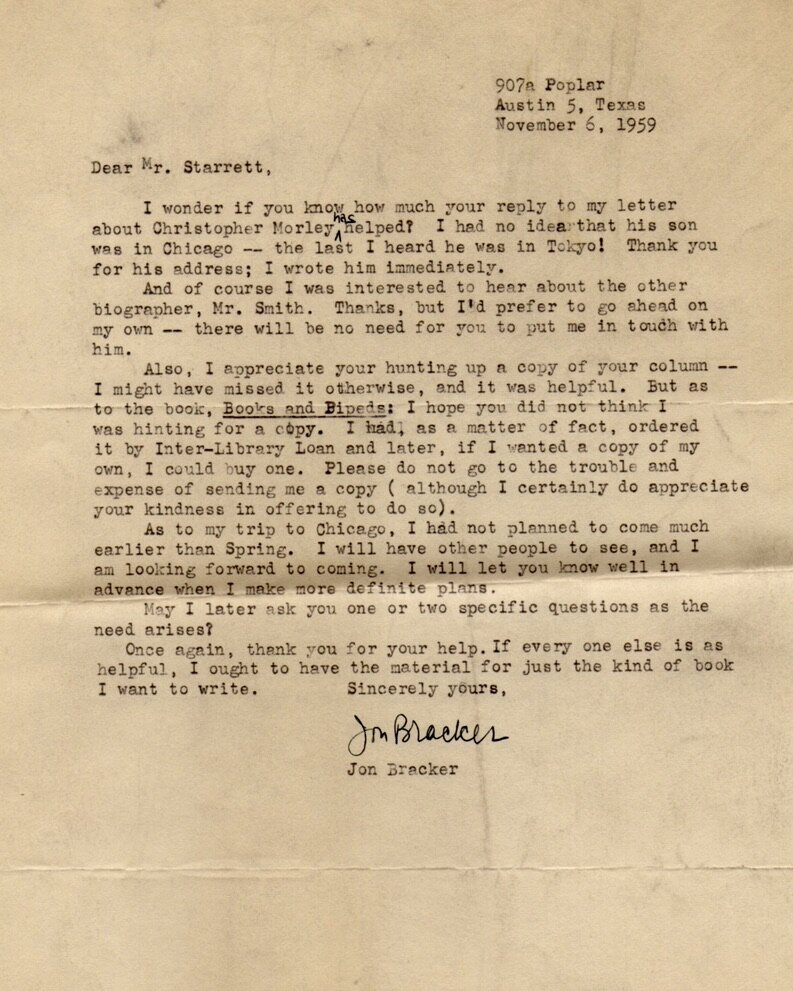
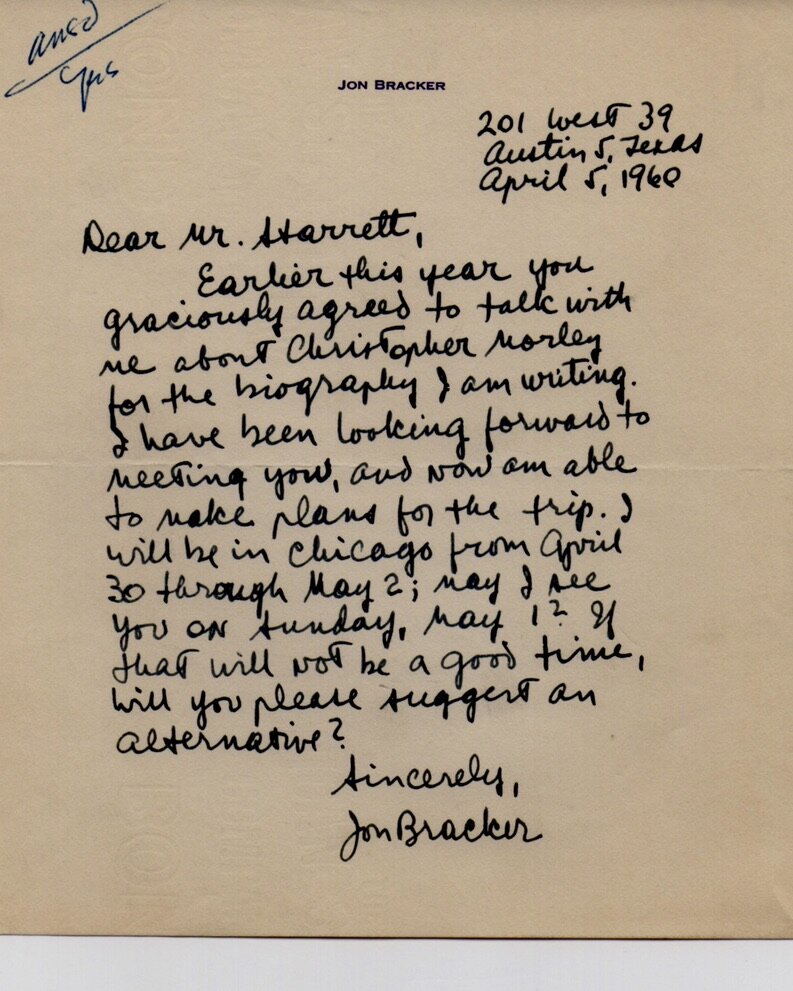
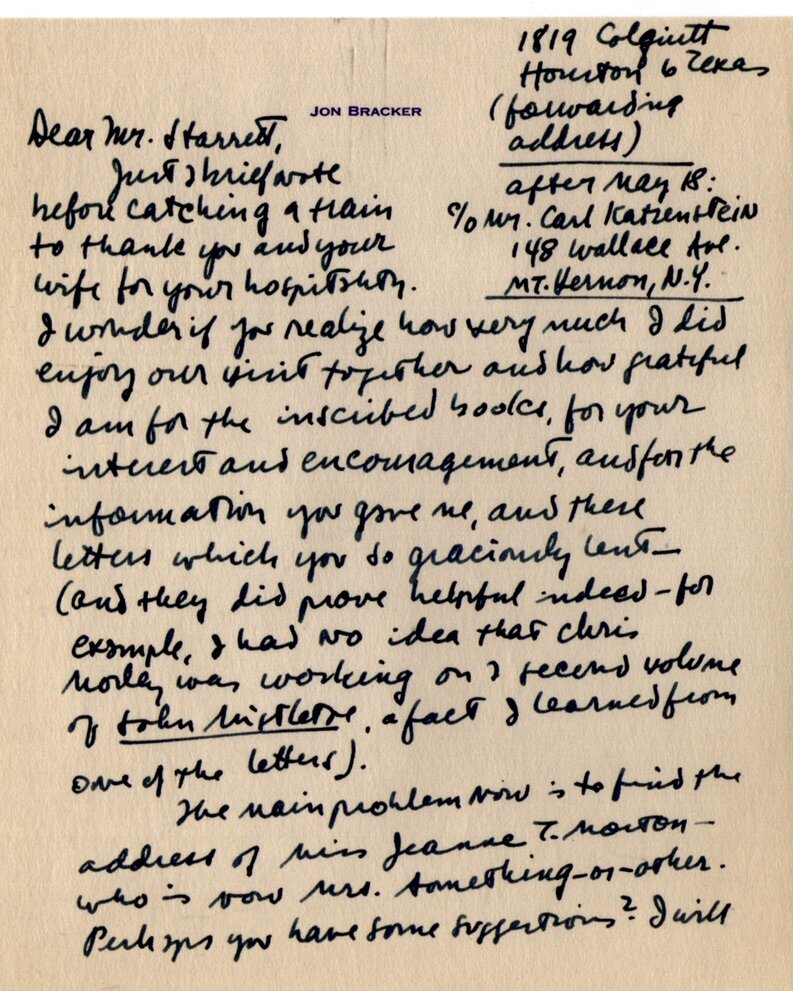
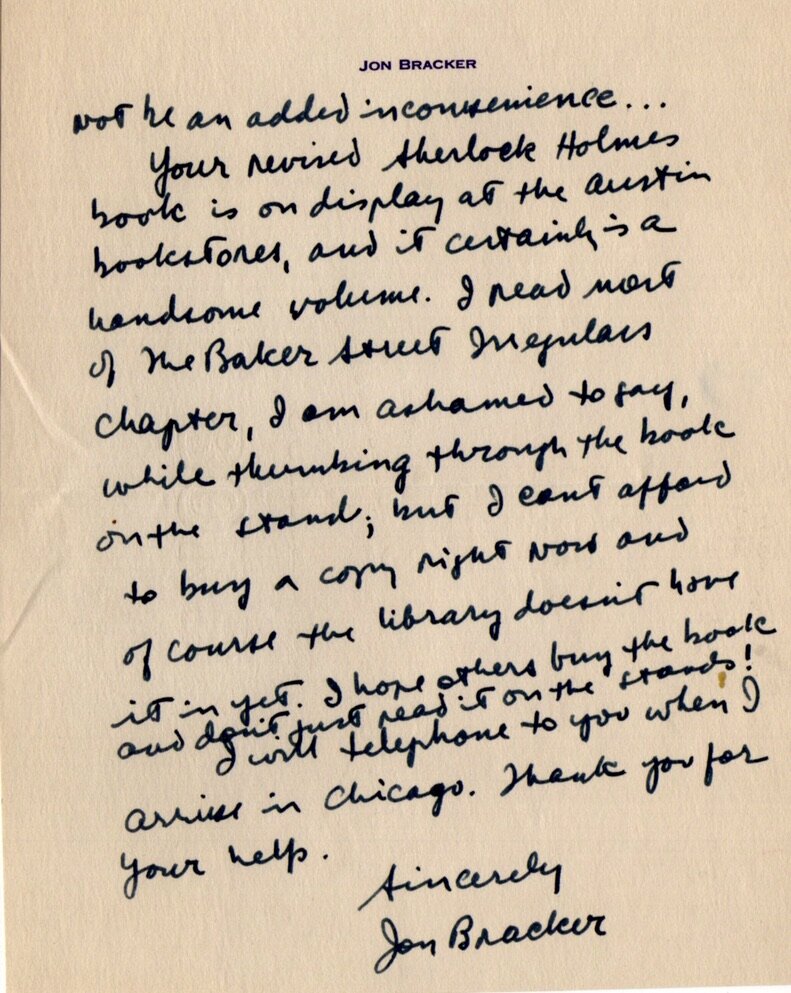
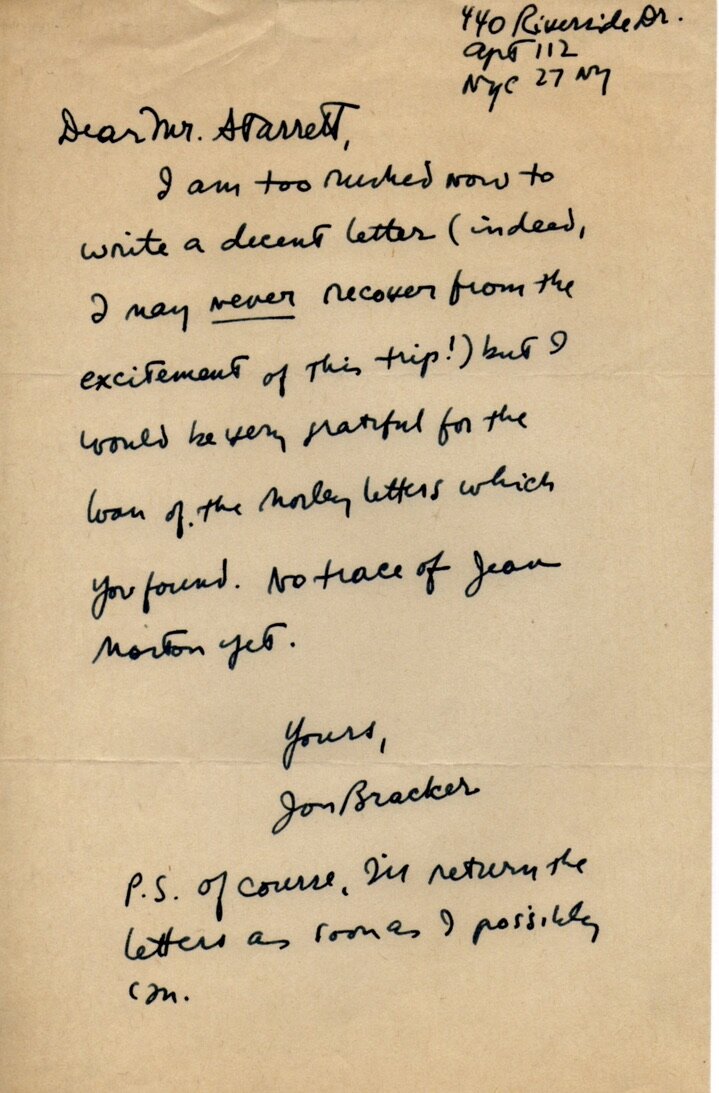

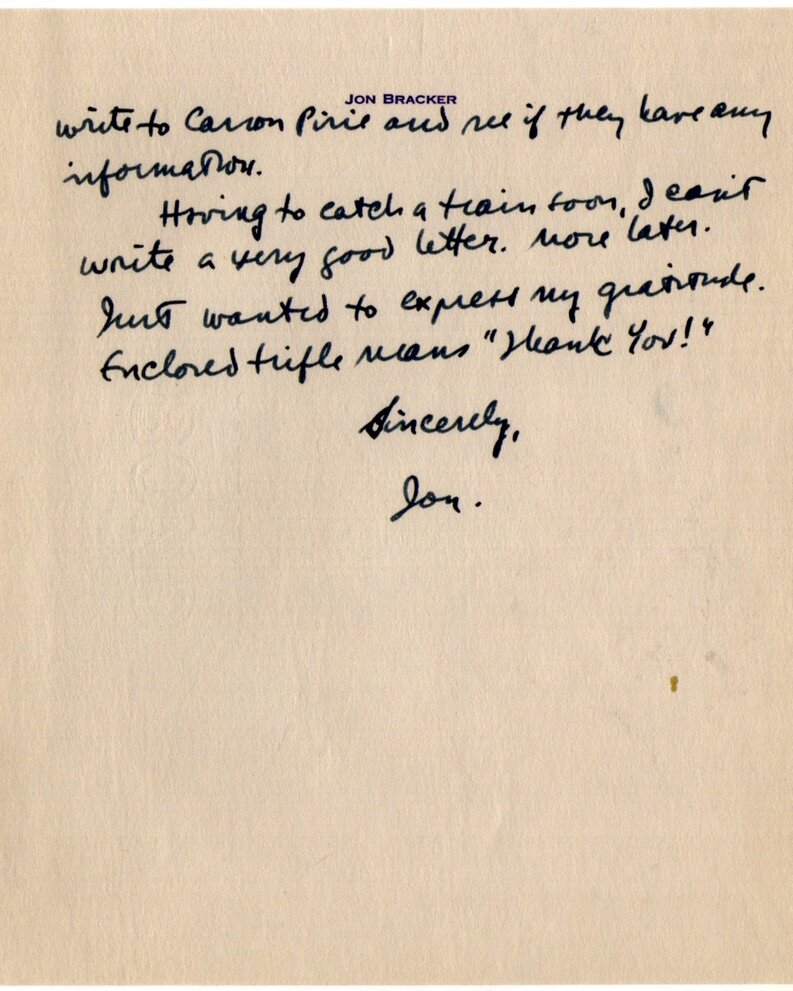
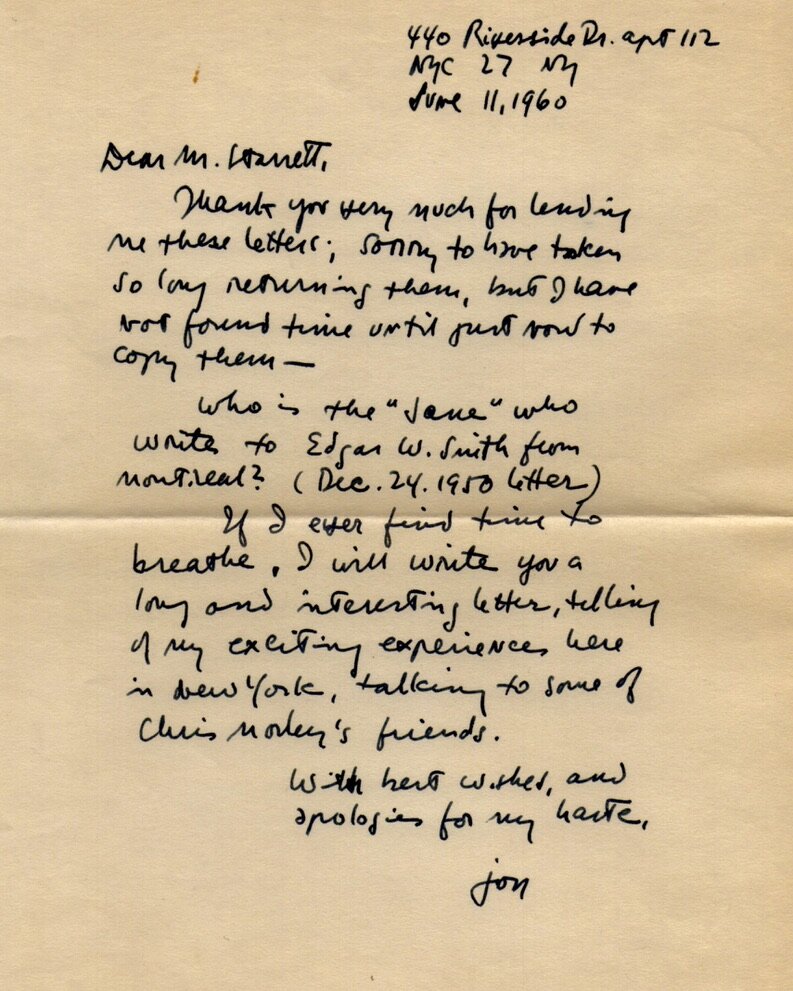
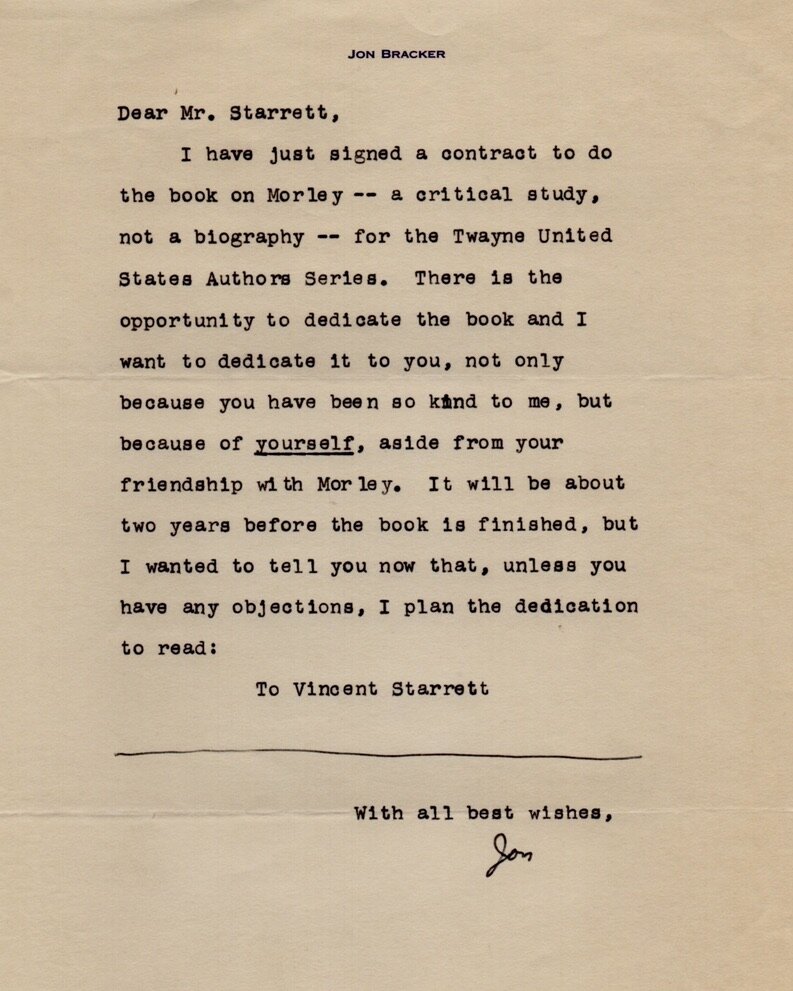
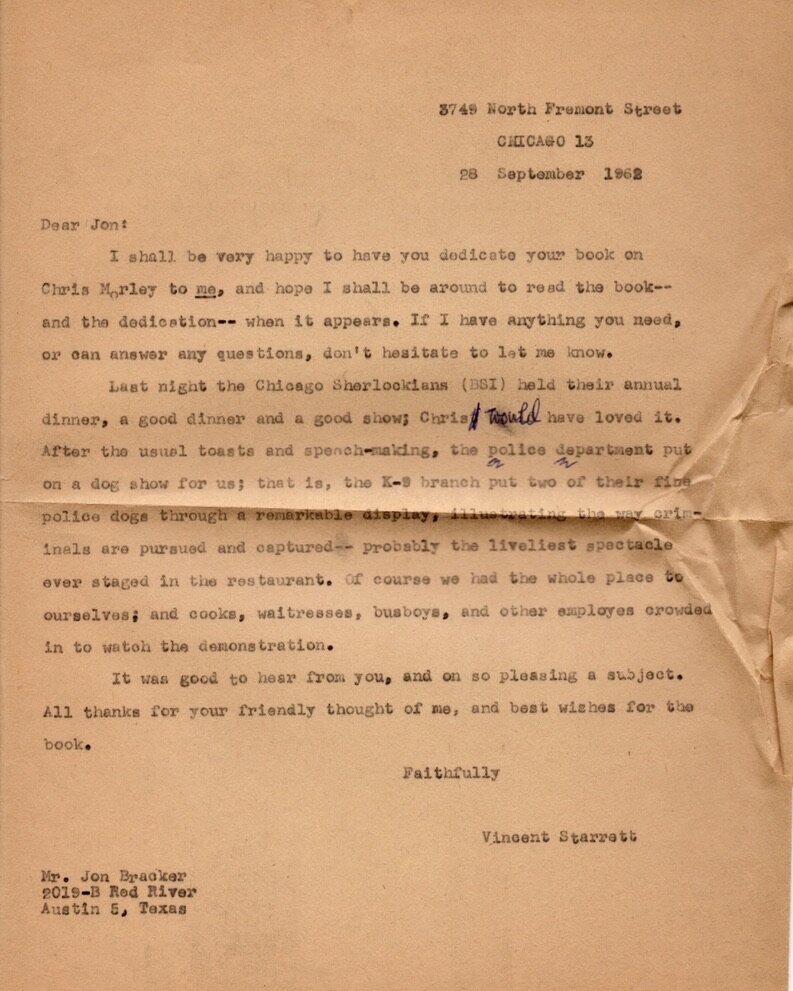
The letters show Bracker’s enthusiasm for the project, which was matched by Starrett. They also show how generous Starrett was to lend his correspondence with Morley. And Bracker’s intention to dedicate the book to Starrett must have touched the Old Bookman deeply.
While the biography of Morley did not appear, Bracker produced a few volumes of poems in the 1960s. In one, he gathered up numerous Morley verses and published them under the title Bright Cages, Starrett was pleased to promote the book in his column for July 25, 1965, as you can see here.
Starrett’s final thoughts about Morley could also be attributed to himself:
“Chris Morley thought of himself as a forgotten man in his last years, probably with reason, but he was not bitter. He knew he had written well, and he was content.”
Bracker moved from Amarillo to Midwestern University, then to Indiana State University, before heading to San Francisco in the 1970s. He continues to write and publish poetry in his 80s.
One of the great pleasures of putting this post together was getting to correspond with Bracker, who very kindly offered this tribute:
No Longer A Swinger
Felix believed he suffered from mood swings,
Discussed this with his many therapists,
Thought it for years until when he was old
He was so used to them, he no longer
Called them swings. He called them wings
Because they got him from place to place.
Rubbing his forehead companionably,
Touching the little lump above his nose
Which he no longer worried about, Felix
Rocks in the rocking chair in his main room,
Looking up as he pauses to think. He is
Reading The Discourses of Epictetus
In the Classics Club edition based on
The translation of Thomas Wentworth Higginson
Who had befriended Emily Dickinson. Felix
Loves that, and he likes the fact that the book
Was published by Walter J. Black of Roslyn, N.Y.
Because Roslyn was where Christopher Morley
Had lived, and Felix loves Morley’s books.
Epictetus explained it all, convincingly:
We would have less moments when our moods
Change as rapidly as leaves fall in Autumn
When whipped by strong winds, if we stopped
To introspect. Thinking deeply, we can choose
Words more carefully: “swings” can become
“Wings” just as “Love” can become “understanding”
And “God” become “Truth” or “Reality.” (Gandhi
Said for years that “God is Truth” until he changed
His mind and from then on said “Truth is God.”)
Words make the great difference. No two synonyms
Mean exactly the same thing. We can hone
Until we find a word that works better, at least
For the moment. Afterwards, if we see a better way
We can rephrase. Epictetus puts it so well!
No wonder men gathered to hear him speak;
No wonder one, a man named Arrian, felt it worthwhile
To write them down for Felix and Felix’ friends.
—Jonathan Bracker
